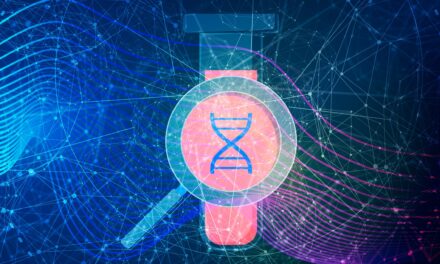Summary:
Natera has received two new FDA Breakthrough Device Designations for its personalized Signatera ctDNA test, supporting its use as a companion diagnostic in Phase III cancer therapy trials across multiple tumor types.
Takeaways:
- Three-Time BDD Recognition: Signatera now holds three FDA Breakthrough Device Designations, reinforcing its potential as a leading tool for early cancer detection and treatment guidance.
- Personalized, Tumor-Informed Testing: Signatera’s custom-built approach tailors each test to the patient’s unique tumor mutations, enabling ultra-sensitive detection of residual disease.
- Clinical Validation and Regulatory Momentum: While not yet FDA-approved, Signatera is clinically validated for several cancers and may benefit from expedited approval and reimbursement pathways under CMS’s proposed policy.
Natera, Inc., a pioneer and global provider of cell-free DNA testing, today announced that the US Food and Drug Administration (FDA) has granted two Breakthrough Device Designations (BDDs) covering new intended uses of the Signatera molecular residual disease (MRD) test. These new designations will support the development of Signatera through Phase III clinical trials as a companion diagnostic to two different cancer therapies. Together with the BDD granted to Signatera in 2019, this makes a total of three BDDs granted across multiple cancer types and indications.
“We are committed to working with the FDA and with our biopharma partners to validate the use of the Signatera MRD test across a broad range of solid tumor indications,” says Fayyaz Memon, vice president of Regulatory Affairs at Natera. “These two new Breakthrough Device Designations will help us accelerate our mission to bring life-saving diagnosis and treatment to cancer patients as early as possible.”
BDD Program Accelerates Approval of Novel Technologies
Under the BDD program, the FDA helps accelerate the approval of novel technologies that provide for more effective treatment or diagnosis of life-threatening or irreversibly debilitating human diseases. A recent policy proposed by the Centers for Medicare and Medicaid Services (CMS) would also, if finalized, provide an accelerated path to reimbursement for Breakthrough Devices that are FDA cleared or approved.
Signatera Is a Custom Built ctDNA Test
Signatera is a custom-built circulating tumor DNA (ctDNA) test for treatment monitoring and molecular residual disease (MRD) assessment in patients previously diagnosed with cancer. The test is available for both clinical and research use, and has been granted three Breakthrough Device Designations by the FDA for multiple cancer types and indications. The Signatera test is personalized and tumor-informed, providing each individual with a customized blood test tailored to fit the unique signature of clonal mutations found in that individual’s tumor. This maximizes accuracy for detecting the presence or absence of residual disease in a blood sample, even at levels down to a single tumor molecule in a tube of blood.
Signatera is intended to detect and quantify how much cancer is left in the body, to detect recurrence earlier and to help optimize treatment decisions. Signatera test performance has been clinically validated in multiple cancer types including colorectal, non-small cell lung, breast, and bladder cancers. Signatera has been developed and its performance characteristics determined by Natera, the CLIA-certified laboratory performing the test. The test has not been cleared or approved by the US Food and Drug Administration (FDA). CAP accredited, ISO 13485 certified, and CLIA certified.
Featured Image: Mariakray | Dreamstime.com





